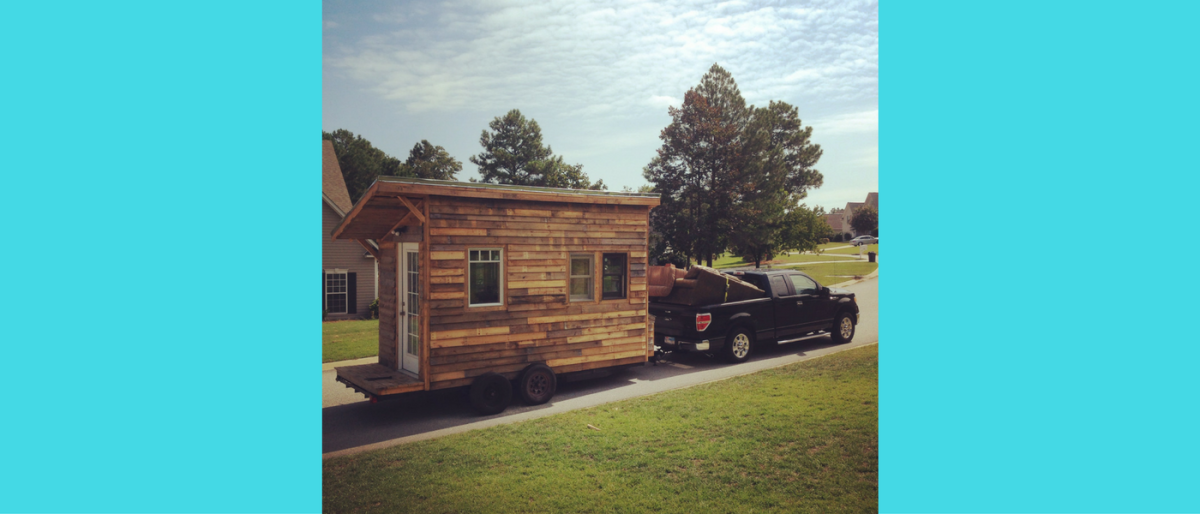By: Sarah Madden, Senior Writer
Senior Matthew Aurednik spent about 350 hours of his summer building a tiny house for his environmental studies capstone project.
Aurednik says he built plenty of tree houses and forts in his backyard as a kid, but nothing like this house. “I would say I’m more experienced in building structures than a lot of kids my age,” he says. “I didn’t exactly know what I would be getting myself into, but what I didn’t know I [learned] very quickly through the mistakes I made and the research I did [to fix them].”
For Aurednik, the project is rooted in the idea of downsizing and living on only what is necessary. “The tiny house pretty much encapsulates all my passions. As an environmental studies major, I’ve come to learn how much my actions affect the world. I hope that through this project I can make people aware of the same impact they have and educate them on how they can serve our world better.”
The plan is for Wofford students to stay in the house and give feedback on their emotional and physical response to living in a tiny house. “Hopefully, I’ll be able to answer the question regarding why people may or may not want to downsize their lifestyle and live more sustainably and efficiently,” says Aurednik.
First, the house has to be completely finished. He says it’s about 95 percent completed. “The remaining work is small things, such as the inside trim for the windows and putting up curtains.”
Because it isn’t yet “livable,” Aurednik has not stayed in the house, though he plans to live in it permanently after he graduates. “I don’t need a lot of material possessions and I think this type of lifestyle would suit me perfectly.”
He admits that the process has been long and challenging.
“I started gathering materials during the fall of last year and began building over interim… there were issues with my original design and I had to disassemble and start from scratch at the beginning of the summer.”
Summer heat, a lack of correct materials and limited help with heavy lifting were also challenges Aurednik faced. “I did everything myself, with minimal help,” he says. The project draws on what Aurednik has learned as an environmental studies major.
“We are always encouraged to think outside the box. I’ve been heavily influenced by the famous environmentalists that we have learned about; Henry David Thoreau, Aldo Leopold, Edward Abbey and countless others all lived lives that focused less on themselves and more on the world and what was going on around them.”
He says that building the house has made a profound impact on him.
“My project has forced me to go into more depth and research than I ever would have before on what it would mean to live more sustainably and efficiently. Honestly I can say that it has changed my outlook on life and shaped the way I will live in the future.”
While the house is being kept near campus this fall for Aurednik’s research, students are only able to visit the house by appointment. “I want people to be able to come see it, but I also have to respect [the landowner’s] privacy. I hope to be able to open up a day where I can be present and people can come see it, but otherwise I would encourage people to contact me if they would like to see the house.”





























